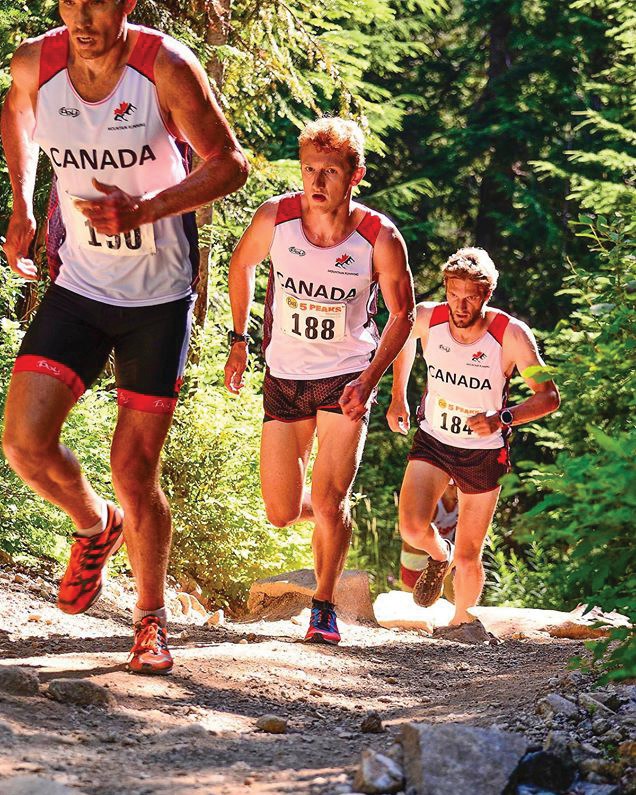Local competitive runner Shaun Stephens-Whale had to fight off a bear attack while training for a summer job as a firefighter with the provincial Wildfire Service.
Stephens-Whale was in Merritt for firefighter boot camp in late May, and was doing some trail running to keep in shape for his job and get ready for future races. He was out for a run in an area known as Norgaard Lookout on May 25 when he heard something behind him.
“It was a beautiful single-track mountain bike trail surrounded with ponderosa pine and I was really enjoying myself, but about three [kilometres] into the run, I heard something behind me,” he told Coast Reporter this week. “I looked and there was this pretty large black bear trotting towards me. It didn’t seem too aggressive.”
Stephens-Whale said he thought this bear, like others he’s encountered, wasn’t really interested in him so the best thing to do would be get out of its way. “I made a beeline for the bushes thinking it wouldn’t follow me, but then I looked behind me and it had turned with me into the bushes. At that point I knew I was in trouble.”
There was no doubt in Stephens-Whale’s mind that the bear was determined to attack him and not just scare him off.
“I was still running when the bear caught up to me and clawed at my thigh, and put a gash in it, then grabbed my shorts and gave me a bit of a wedgie. I wiggled my way free and I realized things were getting real and I had to change my tactics. That’s when I turned around to face the bear.”
Stephens-Whale said as he tried to turn to fight back he tripped on a root in the dense brush and fell on his back. “The bear got on top of me. I found a stick and whacked it on the nose [and was able to] get back up. That was sort of scary.”
The bear wasn’t giving up. As Stephens-Whale scrambled away it continued to come after him, so he picked up a bigger stick and started yelling at the bear, throwing rocks and hitting it when it got too close. Eventually he got away.
It was after he got away that he suffered his worst injury. He slipped on loose rock and twisted his ankle running back to his car.
While waiting in line at a store to buy something to treat the cut, he struck up a conversation with a man who noticed the injury and asked what happened. The man convinced Stephens-Whale he should go to the hospital to be checked out.
While at the hospital he reported the attack to the Conservation Officer Service (COS). Stephens-Whale says that’s the lesson he’d like to pass on to others. “After an incident like that [happens to you], make sure you get checked out and make sure a Conservation Officer knows about it. Any aggressive bear in the area needs to be contained.”
Stephens-Whale said he had to give up the shorts he was wearing so the COS could have DNA evidence to prove they had the right bear if they were able to track it down.
Reports from the Merritt Herald say the COS ordered the trail closed and dispatched a five-person “predator attack response team” to look for the bear. They also set traps. After a week passed with no sign the bear was still in the area, the restrictions were lifted.
Stephens-Whale said he now regrets trying to run away instead of standing his ground sooner to try to scare the bear off. “I knew from my bear knowledge that standing up to an aggressive black bear is what you have to do. You can’t just curl up into a ball.”
Stephens-Whale was able to successfully complete boot camp and was well enough recovered to compete in the Toughest Mudder race June 17 in Whistler (see Coast Reporter, June 23). He’s now stationed at the Wildfire Service’s Sechelt base for the summer.
See more on what to do if a bear attacks at the BC Parks website: www.env.gov.bc.ca/bcparks/explore/misc/bears/bearsaf.html



